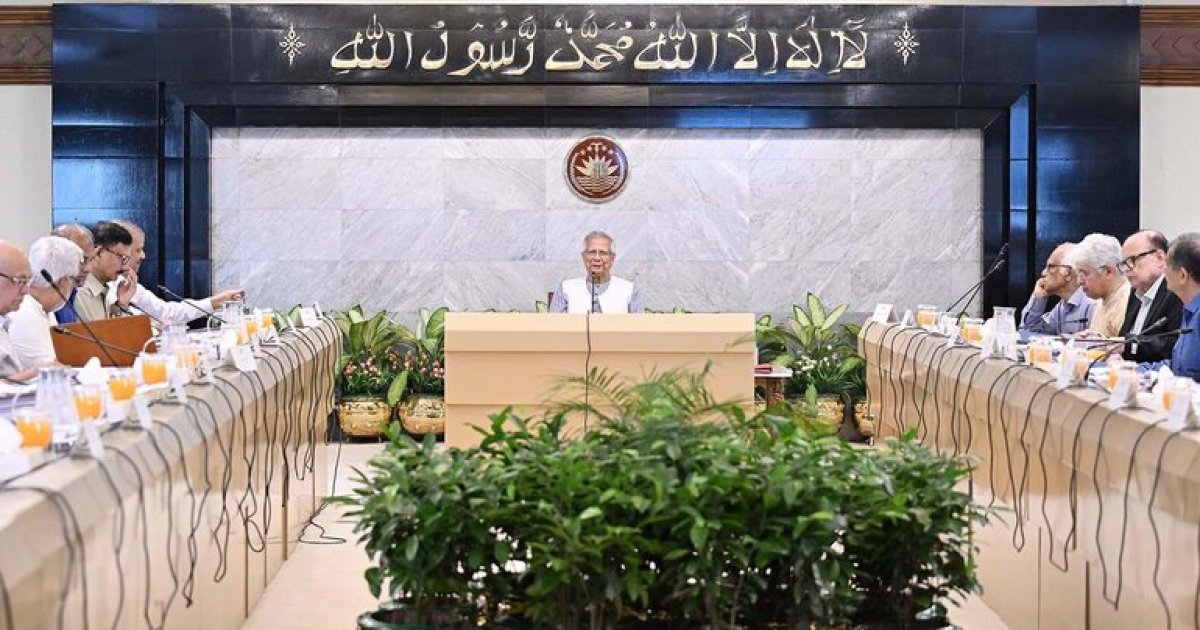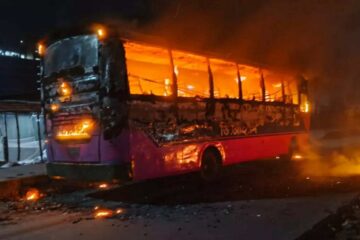The Advisory Council of the interim government has approved the draft amendment to the Representation of the People Order (RPO), introducing a provision that bars any fugitive accused from contesting in the upcoming national elections.
The decision was made at a council meeting chaired by Chief Adviser Prof Muhammad Yunus at Tejgaon on Thursday. Later, Law Adviser Dr Asif Nazrul briefed reporters at the Foreign Service Academy, outlining the key features of the revised draft.
Under the approved draft, the definition of “law enforcement agencies” has been expanded to include the army, navy, and air force—allowing members of the armed forces to perform election duties like the police, without requiring a separate order.
The amendment also introduces postal voting for expatriate Bangladeshis and election officials, including those in government service or in custody. Expatriates will be able to register online and vote via mail using an IT-supported postal ballot system. The revised law further ensures that journalists can be present during vote counting.
Dr Nazrul said: “Several important changes have been made to the RPO. The provision for EVMs has been removed. The armed forces have been included in the definition of law enforcement agencies. And individuals declared fugitives by the court will be ineligible to contest elections.”
Explaining who will be considered fugitives, he said: “Those declared absconders by the court—meaning they failed to appear despite court summons or public notices—will be disqualified from contesting elections.”
Several Awami League leaders are currently facing trial over killings and crimes against humanity committed during the July 2024 uprising, some of whom are absconding. Once formally declared fugitives, they will be barred from participating in the polls.
The law adviser added: “The Honorable Chief Adviser has instructed that all candidates must disclose their sources of income—both domestic and foreign—along with full property statements to the Election Commission. These will be made public on the EC website so that citizens can view each candidate’s assets. This requirement will be enshrined in the law.”
He also announced that the Supreme Court Secretariat Ordinance 2025 has been approved in principle. “This law has been under discussion for a long time. Once finalized, all matters concerning subordinate court judges will come under the full jurisdiction of the Supreme Court,” he said.
Criticizing the inefficiency of bail hearings, Dr Nazrul remarked: “A bench of the High Court granted bail in 800 cases within four to five hours. Whether that level of disposal is even possible raises serious questions. These issues prompted us to finalize this law.”
The amount of security deposit required for parliamentary candidates has also been increased—from Tk 20,000 to Tk 50,000. The draft introduces a “No” vote option to prevent uncontested elections. “In 2014, 154 MPs were elected without votes. From now on, if there is only one candidate, voters will have the right to reject them by casting a ‘No’ vote. If the ‘No’ votes prevail, the election will be re-held,” he said.
Regarding electoral symbols in alliances, Dr Nazrul said: “Even within an alliance, each candidate must contest under their own party’s symbol so that voters clearly know which party they represent.”
He further added: “Previously, if irregularities occurred at a polling centre, the results of that centre alone were cancelled. Now, if the Election Commission determines that irregularities have affected an entire constituency, it can cancel the election for the whole area.”
The council also approved the Labour Law (Amendment) Ordinance 2025, bringing major reforms in line with ILO recommendations. “Ninety sections and three schedules have been amended to strengthen workers’ rights,” he said.
According to the new ordinance, labour laws will now apply to non-profit institutions, and the definition of ‘worker’ has been expanded to include domestic workers and sailors, granting them full legal protection. The controversial provision allowing the blacklisting of workers accused by employers has been abolished.
Meanwhile, Chief Adviser’s Press Secretary Shafiqul Alam announced that the Advisory Council approved the opening of a new Bangladeshi consulate in Detroit, Michigan, USA.
He said: “The new consulate in Detroit has been approved. The Chief Adviser has directed that the office must have full online service capacity from day one.”
Currently, Bangladesh maintains its embassy in Washington, DC, and consulate offices in Houston (Texas), Los Angeles (California), Miami (Florida), New Orleans (Louisiana), and New York, along with a Permanent Mission to the United Nations in New York.


